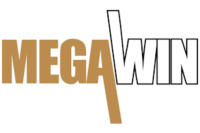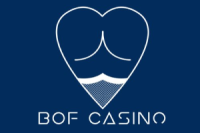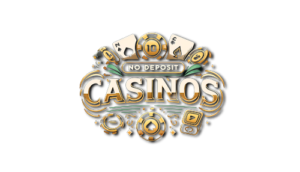The rise of online casinos has revolutionized gambling, offering players the convenience of enjoying their favorite games from anywhere. However, as with any online activity involving money, security is a critical concern. Understanding the importance of online casino security, how platforms are secured, and how players can verify safety measures is essential for a safe and enjoyable experience.
| Rank | Casino | Bonus | Rating | Visit |
|---|---|---|---|---|
| 1 |

|
🎁€1000 + 300 FS | VisitReview | |
| 2 |

|
🎁€10 Free or 15 FS | VisitReview | |
| 3 |

|
🎁€500 or 5 BTC + 200 FS | VisitReview | |
| 4 |

|
🎁€10 Free or 15 FS | VisitReview | |
| 5 |

|
🎁€10 Free or 15 FS | VisitReview | |
| 6 |

|
🎁€10 Free or 15 FS | VisitReview | |
| 7 |

|
🎁 €500 | VisitReview | |
| 8 |

|
🎁€10 No Deposit | VisitReview | |
| 9 |

|
🎁15 FS No Deposit | VisitReview | |
| 10 |

|
🎁€150 + 225 FS | VisitReview |
Why Is Online Casino Security Important?
Online casinos handle sensitive personal and financial information, including credit card details, bank account information, and personal identification data. Without adequate security measures, this data can be vulnerable to theft or misuse. Additionally, ensuring fair gameplay and protecting against fraud are vital to maintaining trust in the platform.
For players, using a secure online casino minimizes the risk of identity theft, fraud, and financial loss. Moreover, a secure platform guarantees that games are fair, winnings are paid out, and disputes are resolved transparently.
How Are Online Casinos Secured?
Online casinos employ advanced technologies and strategies to ensure player safety. Here are some of the primary methods:
Encryption Technology
Secure casinos use SSL (Secure Socket Layer) or TLS (Transport Layer Security) encryption to protect data transmissions. This technology ensures that sensitive information is encrypted before being transmitted, making it nearly impossible for hackers to intercept and decipher the data.
Licensing and Regulation
Reputable online casinos operate under licenses issued by recognized regulatory authorities, such as the Malta Gaming Authority (MGA), the United Kingdom Gambling Commission (UKGC), or the Gibraltar Regulatory Authority. These bodies enforce strict standards for security, fairness, and transparency.
Random Number Generators (RNGs)
To ensure fair gameplay, casinos use RNGs to generate game outcomes. Independent testing agencies like eCOGRA or iTech Labs certify these systems to verify their fairness and randomness.
Fraud Detection Systems
Casinos deploy sophisticated systems to detect and prevent fraudulent activities, such as money laundering, multi-accounting, or bonus abuse.
Secure Payment Options
Legitimate online casinos partner with trusted payment providers, ensuring that financial transactions are processed securely and efficiently.
How Can Players Verify if an Online Casino Is Secure?
Before signing up or depositing money, players should conduct their own due diligence to confirm a casino’s security. Here’s what to look for:
Valid License
Check for a license issued by a reputable authority. This information is typically displayed at the bottom of the casino’s homepage. You can verify the license number on the regulator’s official website.
SSL Encryption
Look for a padlock icon in the browser’s address bar or ensure the URL begins with “https://”. This indicates the site uses encryption to protect data.
Certifications
Reliable casinos often display certifications from independent testing agencies like eCOGRA, which confirm the platform’s fairness and security.
Payment Methods
Ensure the casino offers reputable and secure payment options, such as Visa, Mastercard, PayPal, or cryptocurrency solutions. Avoid platforms with suspicious or little-known payment providers.
Privacy Policy
A comprehensive privacy policy should detail how your data is stored, used, and protected. Absence of such a policy is a red flag.
User Reviews and Reputation
Research the casino’s reputation by reading user reviews on trusted forums and websites. Look for consistent complaints about delayed payouts or poor customer service as warning signs.
Signs of a Problematic or Insecure Casino
Some indicators may suggest that an online casino is untrustworthy or insecure:
- No License Information
- A lack of licensing details or a fake license number is a red flag.
- Unusual Payment Practices
- Platforms that require unusually high withdrawal fees or offer limited, unfamiliar payment options should be avoided.
- Poor Website Design and Functionality
- Professional online casinos invest in user-friendly and secure platforms. A poorly designed website could indicate a lack of professionalism and security.
- Too-Good-To-Be-True Bonuses
- Unrealistically high bonuses or promotions often come with hidden terms that may compromise player experience or payouts.
- No Contact Information
- Legitimate casinos provide multiple ways to contact their support team, including live chat, email, and phone. A lack of contact options suggests a lack of transparency.
Tips for Staying Safe
- Stick to well-known and established online casinos with positive reputations.
- Use strong, unique passwords for your casino accounts.
- Avoid sharing sensitive information via email or unsecured platforms.
- Regularly monitor your account statements to spot unauthorized transactions.
- Set deposit and loss limits to maintain responsible gambling habits.
The importance of online casino security cannot be overstated. By choosing platforms with proper licensing, encryption, and certified fairness, players can ensure a safe gambling experience. Taking the time to verify a casino’s security measures and staying vigilant against potential threats will protect your data, finances, and overall gaming enjoyment. Security isn’t just the casino’s responsibility—it’s also up to players to take proactive steps for their safety.
